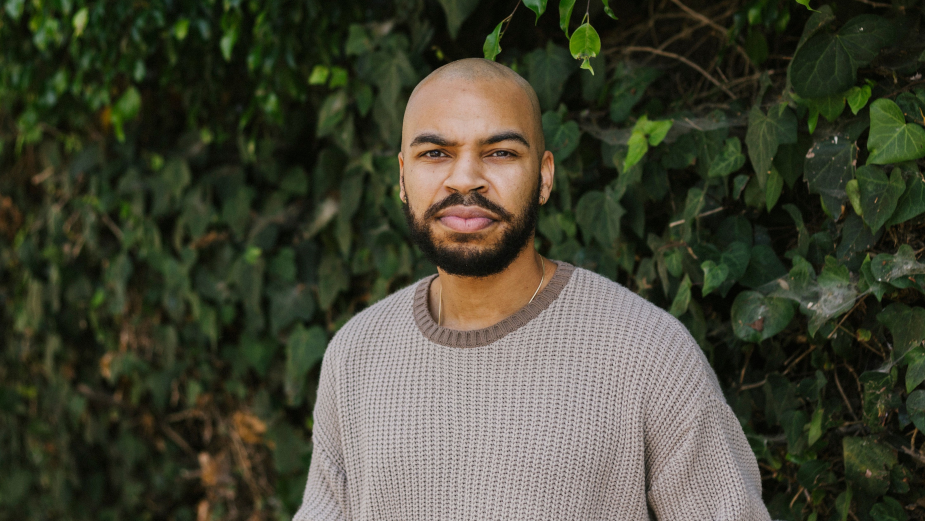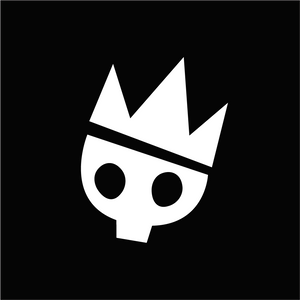
The Directors: Lawrence Lamont

Raised in Detroit, Michigan, Lawrence Lamont is a screenwriter and director interlacing narratives with a warm essence of light and transcendence through a compassionate lens. Lamont’s cinematic and majestic approach to storytelling takes place in the sphere of commercials, music videos, tv, and film. His body of work explores the nuances in social dynamics with a desire to illuminate, empower, and raise the vibration of positivity and love.
To date, Lawrence Lamont has directed artists including J. Cole, Big Sean, Kanye West, O’Shea Jackson Jr., Jhene Aiko, Nas, and Snoop Dogg. Most recently, Lamont directed two episodes of Issa Rae's upcoming HBO series 'Rap Sh*t'. He is a director with Lord Danger, and is managed by ColorCreative. Lamont currently sits on the board of the Michigan Film Industry Association with an aim to build an innovative and sustainable industry.
Name: Lawrence Lamont
Location: Los Angeles
Repped by/in: ColorCreative & Lord Danger
Awards: MTV VMA
LBB> What elements of a script sets one apart from the other and what sort of scripts get you excited to shoot them?
Lawrence> For me, the elements that set scripts apart from others are authenticity and/or nostalgia. Coming from music videos I never wanted my work to be the cliché style we typically see. I’ve always wanted to push the boundaries and have fun. There have been so many commercials to exist and with the Super Bowl, I feel like brands are thinking of everything. But when there’s a script that connects to me on a personal level or sparks a memory from childhood, that excites me. We have to always keep our childlike enthusiasm and I’m striving for that in my work constantly.
LBB> How do you approach creating a treatment for a spot?
Lawrence> The first thing I always do is read the spot a few times to find that personal connection or that one line that defines the entire piece. I write out why I was moved by the spot then I break my treatment down into multiple sections. I like to start with a line that defines the spot to me then follow with each section. The overview, the tone, cinematic approach & execution, the spot, look & feel, cast & performances, locations, and final remarks. I give detailed breakdowns in each section on how I’d pull this off and then begin my reference photo hunt. I have over 1,000 references saved on my laptop that I start with but usually use ShotDeck or Film-Grab to find the perfect images.
LBB> If the script is for a brand that you're not familiar with/ don’t have a big affinity with or a market you're new to, how important is it for you to do research and understand that strategic and contextual side of the ad? If it’s important to you, how do you do it?
Lawrence> I think it’s vastly important to do research and understand the strategic side of the ad. I do this even with brands I am familiar with, but with ones I’m not, I start on YouTube and take deep dives into as many articles about the brand as I can. I like to watch just about every ad that they’ve done and hone in on the energy and messages they’ve put out in the world already. I also ask questions to the producers on my initial call. I was that kid that sat in front of the class and always had my hand raised. I’m not a fan of 'faking the funk' when I can get the answers myself from producers on the project.
LBB> For you, what is the most important working relationship for a director to have with another person in making an ad? And why?
Lawrence> For me, the most important relationship I can have with another person in making the ad is the original writer of the spot. This is a person who has done the research and is hands-on with either the brand or the agency that’s pitching to the brand. I want to know what sparked the ideas and what was the inspiration behind it all. That allows me to give it the proper just due visually because I’m clear on the intention behind the ad.
LBB> What type of work are you most passionate about - is there a particular genre or subject matter or style you are most drawn to?
Lawrence> I’m most passionate about telling stories with and about people that look like me and my family. As times change we are starting to see more Black and Brown people in our favourite spots but still not enough. Genre is in a way subjective to me. I’m mostly moved by a piece that can me laugh, cry and cheer all in one. I’m always striving to simply make people feel good.
LBB> What misconception about you or your work do you most often encounter and why is it wrong?
Lawrence> The biggest misconception about my work is that because I started in music videos my work can’t translate to narratives. This is mainly wrong because every video I’ve ever done has had some sort of story driving force. I also feel like most music video directors are flexing their creative muscles more than most because we have to fit whatever idea we have into three to four minutes and with little to no money most of the time.
LBB> Have you ever worked with a cost consultant and if so how have your experiences been?
Lawrence>I’ve yet to work with a cost consultant on commercials.
LBB> What’s the craziest problem you’ve come across in the course of production – and how did you solve it?
Lawrence> Wow, there’s literally a crazy problem during just about every production. One of the craziest was when I was in the middle of nowhere about two hours outside of New Orleans directing a video for J. Cole at a slave plantation. We’re on day two so close to wrapping when our main generator goes out. It’s night time and this was the only way we could light one of the biggest moments of the video. We called literally everywhere and finally found one about 45 minutes out. Thankfully our wait wasn’t too late and we were able to finish our shoot how we intended.
LBB> How do you strike the balance between being open/collaborative with the agency and brand client while also protecting the idea?
Lawrence>I think the balance comes from knowing what I bring to the table as a creative and being clear on what their vision is. I love collaborating and think that’s the main ingredient of filmmaking so I always want to make it be known that I’m here for we and not just me. This goes back to my asking questions comment. Clarity is the most important thing we have as filmmakers and if we’re all on the same page from the beginning that’ll alleviate any communicative issues that may arise.
LBB> What are your thoughts on opening up the production world to a more diverse pool of talent? Are you open to mentoring and apprenticeships on set?
Lawrence> The production world is opened up wide enough in my opinion and one of my main life missions is to expand this, starting in inner cities and my hometown of Detroit. I believe there are so many kids and adults at home waiting for their opportunity to get behind a camera or write that next killer script, or star in the next big Coca-Cola spot, they just don’t have the resources or know where to start. A dream is to build a facility right in their backyards and teach them through hands-on experience. Mentoring and teaching is also my sacred calling and I believe that whatever knowledge I gain should only be passed down. Being a minority in this country we’re already steps behind, so when one of us breaks in it’s key to shine that light.
LBB> How do you feel the pandemic is going to influence the way you work in the longer term? Have you picked up new habits that you feel will stick around for a long time?
Lawrence> To be honest I can’t wait until the world is somewhat back to normal. I’m not against masks and know how much they prevent the spread of the virus, but working with actors and talent while masked on-set causes us, Directors, to have to work twice as hard for the unseen smile. Connecting to talent requires a full face of emotions sometimes and I do miss those days. I believe the zones are a great new addition on-set and hope it sticks around forever. The days of a large group of people crowded around in video village have vanished and the extra precautions that the covid compliance officers have added make sets feel safer.
LBB> Your work is now presented in so many different formats - to what extent do you keep each in mind while you're working (and, equally, to what degree is it possible to do so)?
Lawrence> I always keep every format in mind but the story/ad is always the visual North Star for me. I let what’s on the page dictate how we’ll approach the subject matter and what format is required. I always like to watch the rough cut of anything I’ve done on iPhones, laptops, and big screens. I understand that the kids have their phones glued to their faces and it’s how most consume content these days so I strive to make sure that whatever message, energy, or story we’re telling connects on all screens. Even the small ones.
LBB> What’s your relationship with new technology and, if at all, how do you incorporate future-facing tech into your work?
Lawrence>I love the new technology. Whether it’s VR or interactive I believe that these new advances will only help the storytelling business. We do what we love so that people can connect or step away from their reality even if it’s only for a couple of hours. I grew up a video gamer and am a filmmaker from the digital era so I applaud the pioneers who are supportive and try out these new tools. Interactive is probably my favourite though because I am afraid of the average attention span dropping too low. When the audience can choose what happens next and be engaged the entire time through interactive storytelling is something I’m looking forward to exploring.
LBB> Which pieces of work do you feel really show off what you do best – and why?
Lawrence> Most recently I directed two episodes of Issa Rae’s new HBOMax series Rap Sh!t and feel like that is my best work to date. Although it’s not out yet I was able to utilise all of my skills from music videos and achieve what the EPs and network were looking for. Aside from that, I’d say Twenty88 - Out of Love, J Cole - GOMD, Big Sean - Single Again, and Big Sean - JOTW. Each of these is much different than the other. Out of Love showcases my range in Sci-fi space. GOMD is a period piece and showcases my ability to research and nail an authentic aesthetic that happened a century ago. Single Again is a grounded love story that I was able to film in my hometown of Detroit. With this, I was able to hire locals to be in front of and behind the camera, and the happiness and love that vibrated throughout the city after we wrapped was unreal. JOTW is a mix between live-action and animation which highlights my childhood as a gamer. I’ve always tried to stay away from being boxed in or only known for one genre. These four prove that I’m much more than a director who can only do one thing.













